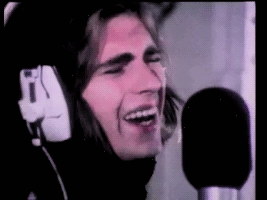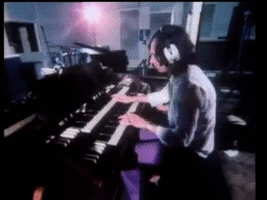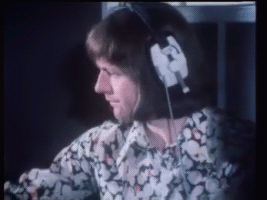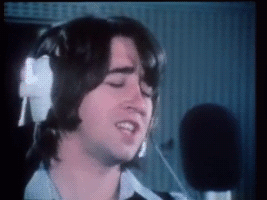#sorry about the terry erasure.
Text




the hollies -> magic woman touch
#the hollies#mikael rickfors#bernie calvert#tony hicks#terry sylvester#bobby elliott#been meaning to make another gif set :')#sorry about the terry erasure.#its was just better this way
40 notes
·
View notes
Text
youtube
youtube
“The ’00s were a bully”, Molly Lambert wrote some time ago, a decade that “revolved around the public and private erasure of consent.” She gives us Terry Richardson, Dov Charney and George W. Bush as proof: the decade’s culture and politics in the West were narcissistic, swaggering, macho, cynical. In the 2010s, things changed course in some ways; we had, famously, the #metoo moment, which tried to re-centre consent, as if in opposition to all the features that Lambert found in the century’s first decade. Exemplary, perhaps, was Fleabag, which admirably brought to the fore the fundamentally traumatogenic aspect of human relationships and human sexuality. This isn’t to say that consent was restored and re-energised, not in the slightest, but it might be fair to say it re-emerged as a problem, as a felt absence rather than a banal one, the construction of a culture of consent as a project to be attempted rather than a triviality.
What about music? We certainly wouldn’t have admitted it at the time, but indie rock may have been where the 2000s’ sexual politics took its most depressingly banal form. Whatever hedonistic pleasure American Apparel ads might have symbolised in their time (and let’s be honest, they did; and so did Last Night’s Party, and certainly so did Skins, and let’s not forget that LCD Soundsystem came out of the same eye-rolling NYC space) was completely absent from, let’s say, “Sex on Fire”. The decade also had Bright Eyes and Sufjan and “Such Great Heights”—music I love by sad boys who probably would have failed their bystander intervention training. They provided a detour much more than a counterpoint, an alternative rather than a challenge.
Here’s where I’m going with this: “New Romantic” by Laura Marling (2007) and “Canopies and Drapes” by Emmy the Great (2009) are songs from the ’00s that went a different way. It wouldn’t be too strong to describe them as songs with sentiments, and modes of expressing those sentiments, a decade ahead of their time.
“New Romantic” is the more famous of the two. It wasn’t on Laura Marling’s debut album, too much a piece of juvenilia, but I remember it as a talking point: she was 17, give or take, it felt weighty and serious and DIY; a talent had arrived. “Canopies and Drapes” (it was “Canopies and Grapes” when we first heard it) was less immediate, more prone to ramble; it felt less like an announcement to the world and more like a note to self. “Canopies” is frantic and compendious where “New Romantic” is resigned and relatively laconic. “Canopies” is chorusless where “New Romantic” circles around its cod-modest mock-apology (“I’m sorry to whichever man...”). “Canopies” rattles off bands and artists’ names to (I think) gently satirise a name-dropping culture of musical fandom, while “New Romantic” offers just the one famous name, albeit an unfortunate one (Ryan Adams). But on certain questions they hit the same notes: never just confessional, they’re self-conscious about artistry too, the need to sculpt narratives that resonate.
“Canopies” feels so precisely like the jokes of the mid-late-’10s: the way they sidle up, self-deprecate, interject. The necessity of jokes to keep from crying, and the eventual lurch to something quite a lot like crying anyway: “there is this book he lent to me something like seven months ago / I’m going to burn it in the street be so kind as to let him to know / that I’m dealing / with this badly.” There’s something in the accretive form of the verses: always accumulating the detritus of life, relaxing briefly, only to contract once more, tighter and tenser still. There’s something, I think, in the way childhood preoccupations reemerge to counter the strains of grown-up life (“I feel worse than when S Club 7 broke up,” “drooling on my own again”). And there’s something genuinely momentous, and brutal, and dark, in the lead-in to the final verse: that bit three minutes in (I’m talking about the demo version) when Emmy’s voice returns, lower than before, and talks in ways that are suddenly quite profoundly unfunny about sleep, grief, convulsion, death. The song tries to get back on its chirpy track but you feel it’s changed and knows it.
“New Romantic,” meanwhile, fixates on youth, on teenage affects and ambitions. The “new” of “New Romantic” has to do with innocence, first times, “first love” (an Emmy song title too). “I’m the first to admit that I’m still pretty young,” Marling sings, as though to preempt praise for wisdom beyond her years; and the glottal colloquialism of “his girlfriend was pretty fit” feels like the sort of thing she’s consciously moving past. As in “Canopies” there’s the digression, here following the Ryan Adams line—“I’ve got this friend and he sounds just like him,” which moves the narrative sideways and opens onto another tangle. The key’s in the chorus though, not for its apology but for its matter-of-factness about frailty and inability. The apology’s not about the man it’s addressed to, it’s about Laura herself; it’s the facade that justifies her blues.
I’ve described this as a 2010s mode (and could narrow it down further: it’s really post-2016), but it won’t have escaped notice that we’re not in the 2010s anymore. Aspects of this structure of feeling have survived into this decade, but the post-pandemic mode’s probably still more ground-down. It’ll take a while longer to know what relationships between songs, sadness and sex might look like in the 2020s. For the time being then, there’s these two: wise, welcoming, shit far from together, possessed of an understanding which the rest of us are still grasping towards.
0 notes